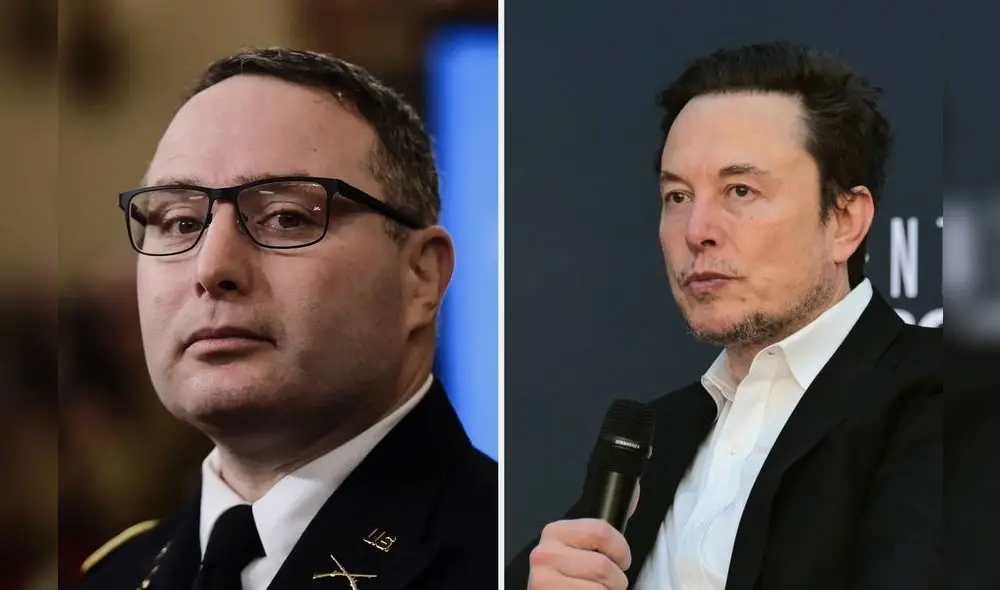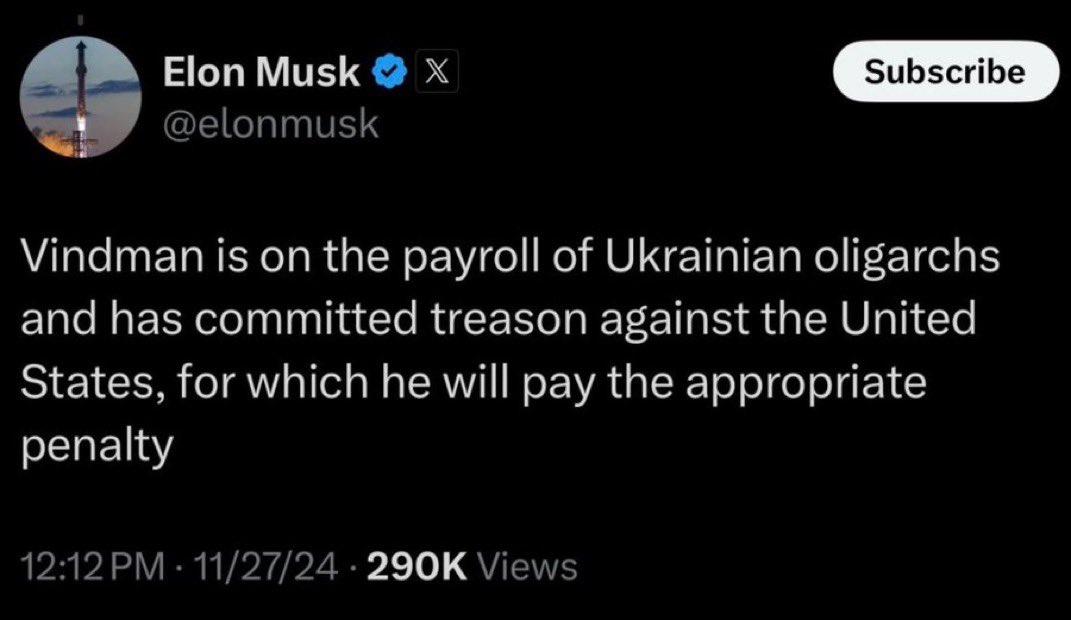Elon Musk accused Alexander Vindman of betraying the US after calling him a "puppet" of Russia and Putin
Vindman, former director of European Affairs at the National Security Council, has criticized Musk for his control of social media. The dispute reflects debates about ethics and responsibility in the digital media. Learn all about it here.

Alexander Vindman responded to Elon Musks Wednesday accusation of "treason" and a promise that he would "face appropriate consequences. Vindman had earlier claimed that Musk was collaborating with Russian president Vladimir Putin. In recent years, the United States has criticized actions taken between Russia and Ukraine. President Joe Biden and incoming president Donald Trump have had different positions on the issue.
In reply, Musk asserted that Vindman was being paid by Ukrainian oligarchs and had committed treason against the United States, warranting due consequences. The situation around the war between Russia and Ukraine, it is really complicated and very difficult to stop.

Elon Musk and Vindman have had some verbal clashes in recent years. Photo: Plattford Vox.
Why did Elon Musk accuse Alexander Vindman of betraying the US after calling him a “puppet” of Russia and Putin?
Elon Musk accused Alexander Vindman, former director of European Affairs at the U.S. National Security Council, because he believes he used Ukrainian money improperly. The tycoon, who also owns the X network, directly accused Vindman in the middle of the plan that President Donald Trump wants to carry out to try to put an end to the war between Russia and Ukraine.
However, Musk and Vindman have a history of clashing on social media. Exactly two years before their latest confrontation, on November 27, 2022, Musk tweeted that Vindman was "both puppet and puppeteer," questioning who controlled him. This came after Vindman criticized Musk, saying he had "way too much power for one unpredictable person to hold."

The exchange of words between Musk and Vindman would continue in the coming days. Photo: Api.
The 3 keys to understanding the confrontation between Elon Musk and Alexander Vindman
This confrontation highlights debates about freedom of expression, corporate responsibility and individual power in the digital age. Here are the 3 keys to understanding the confrontation between Elon Musk and Alexander Vindman.
- Mutual accusations about control and ethics in social media: Alexander Vindman criticized Musk, arguing that a single person should not have so much control over such an influential platform. This led Musk to call Vindman a “puppet and puppeteer,” insinuating that his actions were orchestrated. Vindman, in response, called him a “spreader of hate and division,” highlighting problems with Twitter's management under Musk.
- Using networks to discredit opponents: Musk suggested that criticism against him, including from Vindman, was part of an organized attack, describing some similar tweets as the work of “bots in human form.” This claim escalated tensions, drawing more attention to Twitter's handling of disinformation policies.
- Political and social context: Vindman, known for his role in the impeachment trial against Donald Trump, has an image as a champion of ethics and public service. In contrast, Musk has been criticized for decisions on Twitter that some perceive as permissive toward hate speech. This clash reflects a broader conflict over the use and control of digital platforms.

Elon Musk accuses Vindman via the X network. Photo: PBS.


















